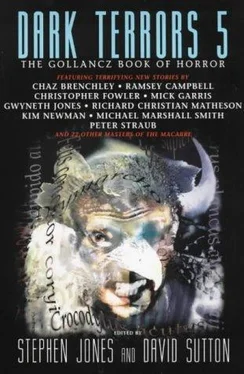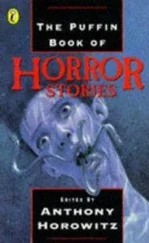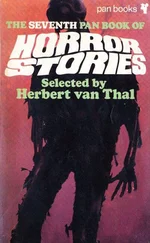Jerry slammed it down, cursing.
A few seconds later, it rang.
The sound startled us and we gaped stupidly at each other. Then Jerry snatched it up. ‘That’s right,’ he said, and at the same time I heard a loudspeaker blaring from somewhere in the streets behind us. Jerry said, ‘That’s right. Three of us. Right, we’ll be there at ten exactly. Well, sure… but look… how do we tell if they’re… all right? If we do find any others… is there some way to tell?’ He listened, tight-lipped. ‘All right,’ he said. He put the phone down.
‘They’re evacuating us from the navy pier,’ he said.
‘Thank God,’ Mary whispered.
‘We’re to be there at ten o’clock, on the dot… and they won’t wait long.’ Then, anticipating my question, he said, ‘They didn’t say how we could tell… said that everyone would be checked by a doctor, at the pier.’
‘Then they have found a way!’ I said. ‘Maybe Elston’s damned autopsies proved fruitful.’
Jerry nodded doubtfully.
A van moved down the waterfront, going fast and not stopping. The loudspeaker sounded the message, the same message we had received over the telephone. I wondered if they were phoning every number in the town; I had an eerie echo of telephones ringing, unanswered, in empty houses; ringing in sequence up and down the streets, forlorn and futile. The van passed and I saw armed men holding their weapons ready at the windows; it turned up the cobbled streets and we heard the message repeated again and again as it wound through the town, making an effort to get through to anyone hiding there… anyone who could understand. The message was given in Spanish on every third broadcast. I was cheered greatly by this, by the knowledge that something had been determined, something was being done, authority was taking measures. I suppose, without actually admitting it, I had feared that the compound had been overrun and that we were on our own. The authorities were responsible for this horror we were in, yet it was still reassuring to know they continued to function.
I said, ‘Well, thank heaven.’
But Jerry said, ‘It might not be so easy.’
He was at the window, looking out.
He said, ‘Christ, they’re all over the place!’
I felt my throat constrict. I joined him at the window and the hair came up stiff on my neck. The loudspeaker seemed to have attracted the ghouls, to have played the catalyst that brought them out of lethargy, summoning them from their various places and bringing them to the waterfront. There must have been twenty of them. They came filtering out of the sidestreets and from the warehouses, moving in the wake of the van… some Pied Piper syndrome which Elston would have termed a side-effect, bringing them together. I recognised the bearded man from the Red Walls and, I think, two or three others from the initial infection. There were several women; one clutched a baby to her breast in a mockery of the maternal instinct. The baby was dead. They moved after the van and then, when it had vanished, milled about mindlessly. They did not attack one another. From time to time two or three of them, following their own paths, would come into contact — would bump or brush together — and then they would snap and slash at each other in a momentary bestial rage, but it was fleeting ferocity. An instant later they would wander apart again. They did not kill each other. Elston could be proud of the nicety with which he had regulated their instincts…
* * *
At nine o’clock a landing craft came wallowing into the harbour and dropped its ramp alongside the navy pier. The pier was some distance down the front and it was hard to see just what was happening, but we saw men in blue uniforms splashing through the shallow water and others running along the pier. They all carried automatic weapons. They deployed in a crescent around the pier. Several men in white coats detached themselves from the crescent and moved forward. They were all on the seaward side of the link fence. A group of men in khaki came through the defensive lines, carrying strange, bulky objects. They moved quickly and, within minutes, those objects had been transformed into a tent-like affair of poles and canvas. It looked like the shield they put around a broken-legged racehorse on the track, before they shoot it — letting the animal linger longer in agony so the spectators will not have their delicate sensibilities offended. This structure was erected near the fence, on the perimeter of the armed crescent. As soon as it was up, the men in khaki hurried back to the dock. The men in white vanished behind the canvas.
It was nine-thirty.
The navy pier was only ten minutes away — walking.
We were ready to go — waiting.
While this activity was going on, the ghouls were still wandering along the docks. They showed little interest in the proceedings at the pier. They didn’t even look dangerous, somehow; demented, tormented, with the madness transfiguring their features, but not dangerous.
Jerry said, ‘You know… it’s funny… you’d think it would be more horrible with that whole load of things out there, but it don’t seem as bad as it did with one — when Sally looked in the window. One thing, alone…’ He was looking out, squinting, tight lines drawn around his mouth. ‘Well, it ain’t like snakes, is what I mean,’ he said.
Mary and I looked at him.
I realised what he was doing — that he was just saying the first thing that came into his head, to hold our attention; to keep us from considering the gauntlet we soon must run.
He said, ‘Now, you take your snakes. One snake, on his own… he ain’t so scary. But you get a whole pit of snakes, all squirming together and wriggling about, that scares anybody. Now, you’d think that whole load of ghouls would be the same. But it ain’t.’ He paused. I thought he’d run dry, but he was just getting his words in order. He said, ‘I guess they’re more on the line of rats in a sack.’
Mary and I looked at each other, then at Jerry. But he knew what he was saying.
He said, ‘Knew a fella once, used to make his living plucking rats out of a burlap bag. That’s right. He’d go around the bars toting this big bag full of rats. He wasn’t welcomed in restaurants, but he’d go in bars. He’d have fifteen, twenty rats in there. Well, he’d let everyone look in the sack, they’d see all them rats squirming around, they’d get pretty edgy. Then this fella, he’d wager he could reach down in that sack with his bare hand and pluck a rat out. Well, nobody would believe him. He’d get plenty of takers on his bet. Then, sure enough, he’d reach in and grab him a rat and pluck it right out, all wriggling and squealing. Saw him do it a dozen times. Never the once did he get bit.’ Jerry looked at his hand, as if amazed that it had not been bitten. ‘So one time I’m having a drink with him, I ask him what the secret is. He’d had some drink, he tells me there’s no secret to it at all; he don’t know why they don’t bite him, they just don’t. But here’s the thing. He said that when he first started rat-plucking, he tried it with just one rat in the bag. Well, he got bit every time. But as long as there was more than one rat in there, he never got chawed. Now, that was the secret, although he didn’t see it as a secret. When there was a whole squirming mass of rats, they just didn’t bite. He could pluck them out one by one, fifteen, twenty in a row, never got nipped — but as soon as there was just one rat left in the sack, it bit him every time. Just something in the nature of rats in a sack. Well, you see what I mean…’
He had spoken slowly and thoughtfully.
It was nine-thirty-five.
* * *
The canvas shelter on the pier was billowing like a sail and the men who’d gone in there wearing white coats came out looking like astronauts or deep sea divers. They were bundled into thick, protective clothing, heavy leather gauntlets and helmets with black glass visors. The visors were lifted and their faced showed white in the openings. These were obviously the men who would examine prospective evacuees — who would, I hoped, examine us.
Читать дальше












